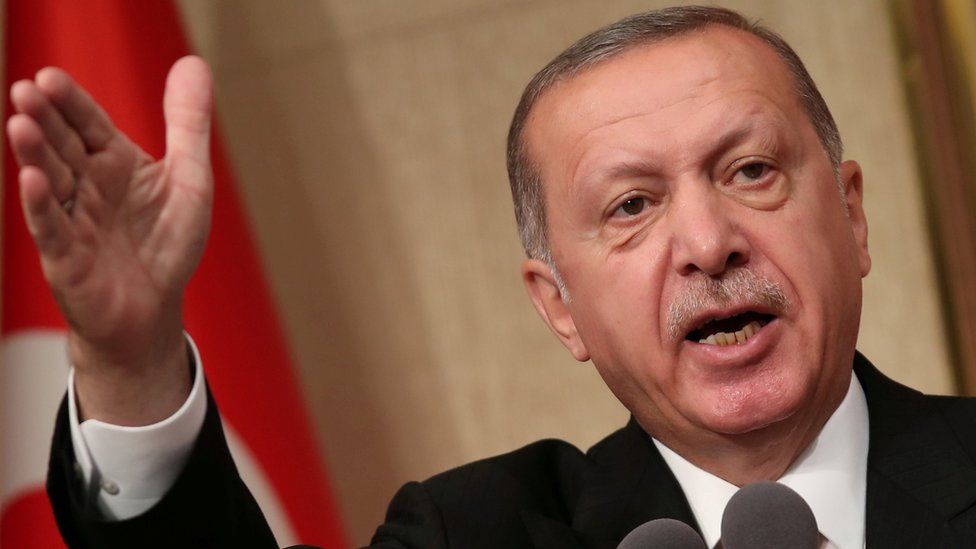Turkey ends state of emergency after two years
- Published

The Turkish government has ended the nationwide state of emergency that was imposed two years ago after a failed coup attempt, state media say.
Under the state of emergency, tens of thousands of people were arrested or dismissed from their jobs.
However the government has decided against extending it again after seven three-month renewals.
The decision comes weeks after President Recep Tayyip Erdogan won re-election.
During the campaign, opposition candidates said that the first thing they would do if they won would be to end the state of emergency.
More than 107,000 people have been removed from public sector jobs by emergency decree since the state of emergency began and more than 50,000 people have been imprisoned pending trial, according to official statistics and NGOs.
Many of those dismissed are alleged to be supporters of the exiled Islamic cleric Fethullah Gulen, who lives in the United States and is a former ally of Mr Erdogan.
Turkey accuses Mr Gulen and his followers of organising the coup, but he denies it.
The 2016 coup attempt saw parliament bombed by military aircraft and more than 250 people killed.
Who's been affected by Turkey's state of emergency?